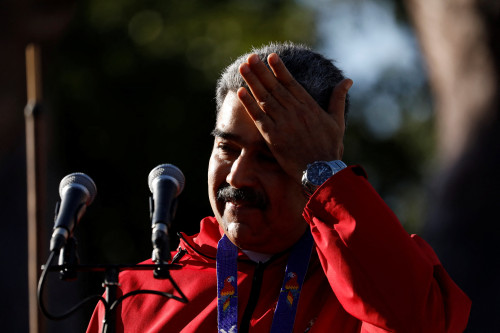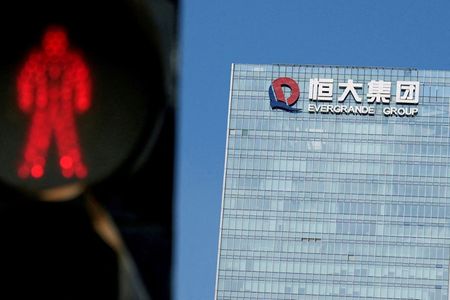LONDON (Reuters) -Venezuela’s bonds could be worth 30%-60% more than at present if building U.S. pressure on President Nicolas Maduro ends up paving the way for what could be the world’s biggest-ever debt restructuring, analysts at Citi have forecast.
The South American oil producer defaulted on its international bonds in 2017, and prices have fluctuated alongside the relationship between Washington and Caracas.
A sharp rally began earlier this year when the U.S. Navy began striking suspected drug boats off the Venezuelan coast and President Donald Trump then offered a $50 million reward for information leading to Maduro’s arrest.
If Maduro were replaced, Citi’s analysts said, the door could open for a long-awaited restructuring of the country’s debt, which it estimates at roughly $170 billion – $110 billion owed by the government and over $60 billion by its state oil company PDVSA.
“We believe Venezuelan credit has rallied on expectations of a regime change,” the bank said in a note, adding that a 50% write-off, or ‘haircut’, of the debt would be the minimum needed to make it economically sustainable again.
They speculated that Venezuela could offer investors a 20-year “new bond” with a 4.4% coupon and a 10-year zero-coupon bond to cover interest payments it hasn’t made while in default.
Using an “exit yield” of 11%, the ‘new bond’ would be worth around 26 points, while the past due interest (PDI) bond will be worth on average an additional 20 points, bringing the total package to the mid-40 cents on the dollar range.
Assessing an implementation of a “Macro-linked Bond” linked to nominal Venezuelan GDP yields similar results, Citi added.
The recovery value could increase to the high-40s if an additional “value recovery instrument” linked to how much money Venezuela makes from selling its oil, is part of the package.
That would make the country’s bonds worth another 30%-60% compared to the 24-29 cents on the dollar most currently trade at due to being in default.
A 50% write-down meanwhile would bring Venezuela’s post-restructuring stock to around $85 billion.
“At this level, a $3.75 bln annual payment capacity translates into a coupon of ~4.4%, consistent with our affordability table and broadly aligned with precedent cases,” Citi said.
“This provides a reasonable and analytically grounded starting point for future negotiation parameters.”
(Reporting by Marc Jones; editing by Rodrigo Campos and Philippa Fletcher)





